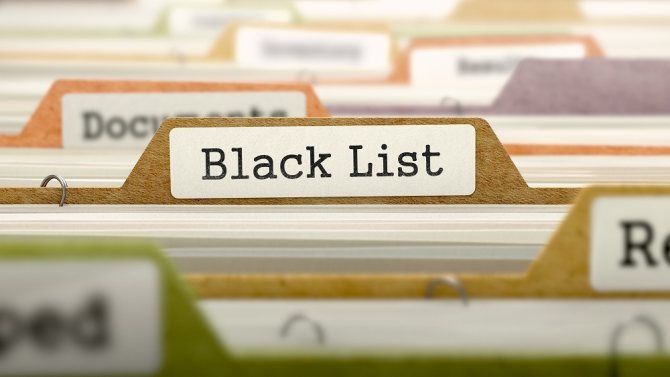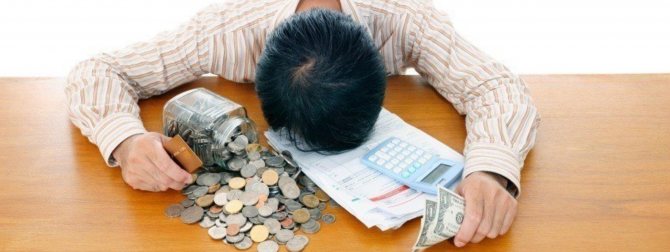If there is not enough money before payday, today no one runs around the neighbors and asks for a loan from relatives. All money problems can be solved in 20-30 minutes if you contact microfinance organizations in Chelyabinsk, Moscow, and St. Petersburg. Microloans are at the peak of popularity today, and many can get them from a microfinance organization. There are almost no requirements: documents include a passport and, as a last resort, a driver’s or pensioner’s license. IFC may require a student or military ID. You can get microloans on a card, through a payment system, or in cash. Duration – from several days to several months. Average age is 20-65 years.
Unfortunately, there is a situation where people want to get a microloan quickly, but are in no hurry to repay the loan.
Why are people in no hurry to give loans to microfinance organizations?
The reasons why a borrower is in no hurry to repay a loan are very different.
- The client has not calculated his strength and is unable to repay the debt.
- An unpleasant situation arose at work and the borrower was forced to pay. As a result, the person was left without a livelihood.
- Wages are delayed.
- Unforeseen expenses arose (vehicle repairs, illness).
There are many other reasons why borrowers do not pay off their debts on time.
What happens if you don’t pay a microloan: 5 problems
If you owe money to banks or MCCs, then you will probably have a question about how not to pay money to microfinance organizations and what will happen if you do not repay the loan.
Although information is often heard that before signing an agreement, you need to read it carefully, many borrowers ignore this advice. Later, it turns out that the borrower will not be able to repay the loan to the microfinance organization, since the interest is high and the lending period is short.
What happens if you don’t give a microloan to MFC “Creditico”, to MFO “Credit Plus” or throw money at “Express Finance”?
- If a person says “I can’t pay a microloan” and addresses this problem to a company, it usually makes concessions and offers various ways to solve the problem. This could be a loan extension, refinancing or debt restructuring.
- The applicant has nothing to pay the loan, but he does not take any action? He will be fined.
- If a client who received a loan from an MFO does not want to pay the loan, ignores phone calls and runs away from the institution, the financial organization sells the debt to a collection agency.
- Borrowers who have debts and arrears receive a “minus” in their credit history (you don’t have to apply to banks for a loan in the future; they are unlikely to issue one).
- The very last stage is going to court.
Note: MFOs or collection agencies rarely go to court. Most often, they try on their own to force the would-be recipient to pay the microloan.
Actions of MFOs to collect debt
I will not analyze the reasons why people get into debt and then don’t pay it off. Sometimes it comes to the point of absurdity when “heroes of our time” are proud of the fact that they abandoned MFOs and talk about it on forums and in comments to feature articles. I do not exclude that after this there will be similar opuses of “super borrowers”. My personal opinion: if you took someone else’s money with the intention of not returning it, then you are a thief and your place is in prison.
But the article is not for these heroes, but for people who find themselves in a difficult life situation and are looking for information about what consequences await them if they do not repay their loans on time.
Penalties
An MFO is a credit organization just like a bank. It only specializes in lending small amounts and for a short period of time. But the basic principles of lending remain unchanged:
- the debt must be repaid;
- return in full and on time.
If at least one of the principles is violated, the MFO has every legal basis to impose penalties on the defaulter. Since 2019, significant changes have been made to the activities of microfinance companies. Interest rates have been limited, an obligation has arisen to calculate the debt burden ratio (DLI) for each borrower and increase your capital if the DLI is more than 50%.
Legislators also touched upon penalties. The borrower's total payments, including the loan body, interest and penalties, cannot exceed 1.5 times the amount of the original loan. For example, a client took out a microloan in the amount of 20,000 rubles. Consequently, his debt, taking into account all interest and fines, if he defaults on it, cannot be more than 30,000 rubles.
Before applying for a loan from an MFO, I recommend reading the terms or rules of the loan. They must be on the official website if you selected an organization using the algorithm from our article.
14.02.2020
141
How to choose the best microloans: criteria for comparing MFOs and their offers
Hello, friends! The expression “intercept before payday” does not lose its relevance...
For example, in the General Conditions of MFC “Zamer” it is clearly written that in case of delay, from the next day the following will be charged:
- 1% per day of the debt amount;
- a penalty of 20% per annum on the outstanding portion of the principal amount.
The same conditions apply in the “Money Men” multifunctional complex.
At eKapusta, overdue debt continues to be charged 0.99% for each day the loan is used until it is repaid. No fines or penalties will be charged.
Collection by microfinance organizations
MFOs have the right to collect debt by all legal means, including transferring the debt to collection agencies and filing a lawsuit. But the organization is not interested in the above two methods. Collectors buy debts at a significant discount, and court is a big waste of time, although in most cases it will be the borrower who loses.
Therefore, MFOs try to repay the debt on their own. In 2019, the scale of independent work with problem debts increased. The Central Bank notes this in its analytical report. Associated with a decrease in economic benefits from transferring debt to professional collectors.
Standard techniques that MFOs use to repay debt:
- psychological pressure on the borrower (calls, SMS);
- offers to use the extension for a fee;
- debt restructuring.
Transfer of debt to collectors
Despite the decrease in the total number of calls to collectors, this method is still common among microfinance organizations. Mainly among those who do not have their own debt collection services.
The activities of collection companies are regulated by Federal Law No. 230. Not only employees of such organizations, but also potential clients, i.e. borrowers, are required to know its main provisions. Professional collectors who work in serious and large companies will never paint the walls of the entrance with threatening messages, call employers and pester elderly relatives. They have legal methods of collection:
- Personal meetings and telephone conversations (there are restrictions on time, quantity, form of communication, etc.).
- Text messages (mail, SMS).
- Providing preferential terms for repayment, for example, installments. Some even write off part of the debt if the borrower agrees to repay most of it.
- Litigation.
In any case, it is not worth bringing the matter to meetings with collectors. These meetings will not bring anything positive to an ordinary person.
Trial
If pre-trial measures do not lead to repayment of the debt, the MFO may go to court.
- Simplified procedure - obtaining a court order
Issued by a judge within 5 days based on an application from the creditor (MFI). Applicable for recovery of no more than RUB 500,000. Supporting documents are required with the application: loan agreement, payment schedule, information about previously made payments, etc.
Calling the parties is not required. According to a court order, it is not necessary to obtain a writ of execution. The creditor has the right, for example, to directly contact the bank to write off money from the debtor’s accounts to repay the microloan and interest.
Within 10 days, the defendant has the right to submit an application to the judge to cancel the court order.
- Lawsuit
This is a traditional way of collecting a debt through a trial with the summoning of the parties, making a decision and transferring it to enforcement proceedings if the result is positive for the creditor.
Once a lawsuit is filed, interest and penalties cease to accrue. The statement that you can be imprisoned for non-payment is a myth. This is only true for fraudsters who have committed theft in the amount of more than 1.5 million rubles. It is impossible for MFO borrowers to accumulate such debts, especially in light of the changes in the law from January 2020.
If the judge rules in favor of the creditor, a writ of execution is drawn up and handed over to the bailiffs. What procedures can they use to collect the debt:
- Seizure of property and a ban on transactions with it.
- Seizure of bank accounts and writing off money from them to pay off debt.
- Sending a writ of execution to the place of work in order to deduct the debt from the defendant’s wages.
- Sale of the debtor's real estate, if it is not the only residence.
- Sale of other things (movable property, securities, jewelry and other expensive items).
- Ban on traveling abroad.
- Restrictions on driving.
There are restrictions on all measures. For example, a car cannot be seized if the debtor uses it to earn a living.
How not to pay microloans?
“I don’t pay my debt to the microfinance organization and I don’t have anything for it” - we’ve heard this more than once. But is it really possible not to pay a loan for a year or a longer period? Let's figure it out.
How to legally avoid paying a microloan?
We have already written above what will happen if you do not pay microloans: fines, proceedings, courts. But in Russia there is a law that allows you to write off all debts from borrowers. This is a personal bankruptcy law. From the information that we were able to find on the Internet, we can find out that debt write-off is only possible if the total debt to all MFCs and banks has reached 500,000 rubles. Although you say “I don’t pay microloans because I’m waiting for debts to be written off,” this law is unlikely to apply to you. MFOs pay small amounts, and it takes a very long time to wait for 500 thousand to arrive.
Note: bankruptcy is a complex and lengthy procedure that requires a lot of time and money.
How long can you not repay a loan without consequences?
“I can’t pay microloans, I just can’t afford it”, “I have a debt, I can’t pay the loan, what will happen”, “I can’t pay off my debt for 3 years, what should I do” - these are typical questions from borrowers and debtors on forums and help sites. There are cases when a person takes out a loan from several microfinance organizations at the same time and is in no hurry to repay the debts. Then he wonders what awaits him, how long he will be able to avoid paying off the microloan without serious consequences. We will dispel illusions - not at all! If you don't pay the loan, the consequences of non-payment will happen quite quickly.
As soon as a borrower misses a monthly obligatory payment, employees of the financial institution begin calling him with reminders of non-payment. This is just the beginning. For each day of delay there will be a fine and penalty. Their size is considerable, and a small failure to pay in a short period will turn into a debt snowball. The size of the final debt may exceed the loan amount several times. The MFO will add the troubled borrower to its blacklist of clients.

A debtor who takes out a loan endangers not only himself, but also his relatives, because the MFO’s methods of returning money can hardly be called legal. The greatest fear of borrowers is administrative and criminal liability. It will be possible to “jail” the debtor in the case when it can be proven that he obviously did not intend to repay the debt even at the time of signing the agreement.
We can summarize: you will still have to pay your debts. If the borrower does not do this voluntarily, the financial organization can seek through the court the seizure of property, blocking of a deposit or salary account.
The main mistake of a borrower who cannot pay off debts to a financial institution is to “lay low.” If you find yourself in a difficult financial situation and cannot cope with payments, start a dialogue with an microfinance organization. There are legal ways to reduce debt.
Is it possible not to pay a microloan: 5 secrets
If some people do not understand how to take a microloan and not pay it back, others say that not paying microloans is legal. Is the law really on the debtor’s side and is it possible not to repay a microloan?
It doesn’t matter at all where you took out the mini-loan, from AKB Green Finance, MFO Denga or MoneyMen, under the terms of the agreement you must return it. Not a single LLC will give up on you and give you 10-30 thousand and even 1.0-2.0%.
There is one legal way not to repay a microloan. All employees of financial institutions are familiar with the expression “bad debt.” This means that neither the MFO itself, nor collectors, nor bailiffs can do anything with the borrower to force him to pay the debt. Typically, such debts hang around for years, accruing interest, but sooner or later they are written off.
If a person took out a microloan and did not repay it, but it was written off, then there were reasons for this:
- the borrower is left without work and cannot find one for a long period;
- there is no movement of funds in the accounts that could be withdrawn to pay off the debt;
- the debtor has no property that could be confiscated;
- The bailiffs cannot find the debtor;
- a counterclaim was filed with a request to recognize the interest on the loan being paid as illegal or too high.
Note: debt cancellation is not completed in a day or two. The entire procedure can take years.
What to do if you have nothing to pay for a microloan?
When it is not possible to pay for a loan, the best solution is to visit the creditor organization and suspend the accrual of interest on the microloan. This will allow you to defer payments for some time. If the MFO does not provide such an opportunity, then you should go to court. This will help delay the payment a little, and the borrower will have time to collect the necessary amount of money. In court you need to prove your insolvency by documenting it. Then there will be a chance that the court will reduce the interest on the microloan.
There will be no complete cancellation of the debt, since all the borrower’s obligations to the microfinance organization are spelled out in the documents. After the trial, the client's debts will be transferred to the bailiffs. And this structure has quite a lot of powers to collect funds from client accounts. The first step will be to seize wages in the amount of 50% of the full amount. If the borrower does not have a permanent job, the funds will be seized by bailiffs on his bank accounts and cards. Bailiffs can seize the debtor's property for debts.
Can they go to jail if they don’t pay a loan to an MFO?
“Can they be jailed for a microloan?” is a question that can be found on various financial forums. If you have a debt that you cannot pay off, and collectors are always threatening you with prison, then it is understandable that you want to know what will happen if microfinance and loan interest are not repaid.
Most often, MFOs and collectors are afraid of Article 159.1, but it can only be imputed if the borrower planned in advance not to repay the debt, and if at the time of signing the offer he understood that he would not be able to pay the loan.
If we are talking about a large amount, then other articles can be “sewn on”: 165 and 177. According to one lawyer, there are many important footnotes that create difficulties and do not allow these articles to be applied to IFC clients.
Note: Article 177 affects legal entities and individual entrepreneurs more.
The case went to court: what should the debtor expect?
It is rare that a court completely takes the side of an MFO. Usually, part of the fines is written off because they are greatly inflated. There have been cases when the court ordered borrowers to repay the entire loan + part of the fines. In addition to the amount of debt, it was necessary to repay legal costs. Sometimes, by court order, part of the salary was deducted to pay off the debt. When rubles were not returned, accounts were also frozen.
Useful tips from lawyers
Taking out a loan from a microfinance institution is not difficult. There are many branches throughout the country. You can apply for a loan online without leaving your room. The ease of obtaining money in a few minutes makes the borrower frivolous. Spending money on personal needs is easy and quick, but repaying a loan is not so easy. Small financial institutions charge a high percentage for using credit funds. Accordingly, the consequences of non-payment are astronomical penalties and fines.
Even when lawsuits are filed against borrowers, this situation is not critical. Those clients who took out a microloan from an MFO and are unable to repay should listen to the advice of lawyers.
Accept the fact that you have problem credit. Collect as much information as possible about your loan: how many penalties were calculated, whether you filed a lawsuit. Seek advice and assistance from a lawyer.

It's complicated. But lawyers recommend not responding to threats from debt collectors. Calls terrorize borrowers around the clock. Collectors dial numbers using automation tools. Change phone numbers if possible. Give them only to close people.
When the court made a decision to confiscate the debtor's property, it was better that he had no property: bank accounts and cards were empty, he did not own real estate. Then there will be nothing to charge. After the statute of limitations expires, the debt will be considered “bad”. This means that the financial institution will have to write it off.
Can I complain about an MFI?
I took money on the Internet, but I have nothing to pay microloans with. What should I do if the IFC does not make any concessions, and the collectors are pestering me?
Every year there are more and more people who are dissatisfied with the MCC service. Either employees behave inappropriately, demanding the return of a microloan taken out long ago, or collectors go too far. Finding themselves in a difficult situation, not all borrowers know where to complain about microfinance organizations and, accordingly, cannot protect their rights. There are several organizations in Russia that are ready to provide assistance: SRO NP "MiR", the Federal Antimonopoly Service, Rospotrebnadzor or the Central Bank.
You need to write a complaint against an unscrupulous organization, indicating your personal data, registration address and the essence of the appeal. The complaint must be signed. You will need to attach a copy of the agreement and receipts confirming payments.
If collectors have violated the law, you must write a statement to the police.
We took out a loan through an online bank. Is the contract signed using the code valid?
A microloan in Krasnodar, Chita, Rostov-on-Don can be obtained using the Internet. That is, you can get a loan without leaving your home. On the main page of the selected MFO, you need to find a calculator, set the required amount and term, select a convenient payment method, fill out a form and send it to the lender. If the lender approves your application, you need to sign a loan agreement via SMS and withdraw the money.
Many people are mistaken when they think that a distance contract is invalid and they can quit the microloan, forgetting about repayment. Those taking out a loan online need to know what the laws are in the Russian Federation. By law, an electronic signature is valid, and you are fully responsible for your actions. It is unlikely that you will be able to scam the IFC and not give the money back, except through the courts, proving your insolvency.
Take note: anything can happen in life, and anyone who has taken out a loan should know what to expect if the loan is not repaid. Firstly, the law does not allow fines exceeding 20% per annum (0.055 per day). Secondly, it is not allowed to increase the microloan due to fines by more than four times. That is, if you had the opportunity to apply for a microloan for 10 thousand rubles, the financial institution has no right to request a refund of more than 40 thousand. In some cases, you will have to seek advice from a lawyer.
There is no money to pay for a microloan in Russia
The first step will require a careful study of the contractual document that was concluded between the parties. It is more profitable for organizations to bring the case not to court, but to a common denominator in order to quickly close the debt. The contract contains clauses regarding the possibility of reducing or quickly closing the debt. A microfinance company can offer the following solutions to the situation:
- Restructure debt. This indicates a revision of the terms of the contract. The company offers its clients a change in the transaction period or dividing it into months. With this measure, the specific amount paid increases, but more favorable conditions are provided for the payer.
- Roll over the debt. This is one of the types of grace period, during which a person will need to pay first only interest, and then the principal amount of the debt.
- Refinance debt. This is one of the most common procedures in which a person turns to another microfinance organization to take out a loan to pay off an old debt. But this option is less profitable, since a person can fall into a serious debt trap already in several microfinance organizations. And not every company will agree to give a large loan to a persistent defaulter.
Also, a citizen who does not have the money to repay the loan must apply to the court to freeze the loan before the court decision takes effect. This is necessary because legal disputes last for several months. While the loan is frozen, no interest will accrue.

If there are delays, you cannot run away from the problem and give up. The debtor always has ways to get out of the pipe situation to stop fines and interest. MFO employees make concessions so that the client does not end up in a debt trap.
Is it possible to legally not pay a loan?
By law, a person will not be completely relieved of his duties. But there are several ways to help the debtor ease his financial plight.
How not to pay a loan from an MFO legally
There are only two ways out of the situation that will help reduce the amount of debt. These include declaring a transaction invalid or declaring a person bankrupt. But upon receipt of court decisions regarding the recognition of a person’s insolvency, this does not relieve him of responsibility. A citizen must file a court application and also contact a lawyer to ensure competent protection.
The Civil Code speaks about the invalidity of the provisions of the contract and the reasons why this happens. Evidence that the contract may become invalid:
- Contractual clauses contradict the law and conflict with state interests.
- The citizen who entered into the transaction is not legally competent.
- The conclusion of the contractual relationship was carried out against the will.
- Conclusion of an agreement not in the form established by law.
- The currency of the agreement is foreign, not the ruble.
- The microfinance institution does not have a license to engage in financial activities in Russia.
- The conclusion of the agreement was carried out with deliberate fraudulent overtones.
The invalidity of the contract is also recognized in the presence of enslaving conditions. A enslaving transaction is one in which the client was in a difficult situation during registration, which forced him to accept an agreement with the most unfavorable conditions. These conditions include the following:
- serious illness or death of a family member;
- death of the breadwinner;
- prerequisites for bankruptcy;
- prerequisites for the loss of the only real estate.
The court also considers other circumstances that put the client in uncomfortable conditions and force him to sign the transaction.
If the legal relationship is declared invalid due to the presence of conditions that violate the rights of both parties, then the second party will have to return the funds in full. This means that the borrower returns a fifth of the debt, and the microfinance organization returns the paid loan interest. If the transaction is considered unlawful on the part of the company, the debt amount will be written off in favor of the client.
Is it possible to legally not pay interest?
It is also possible not to pay interest on the loan if, by a court decision, the citizen is declared bankrupt. Experts consider bankruptcy the most civilized method of protecting a client with debts. A citizen can go to court to recognize his bankruptcy for the following reasons:
- the debt amount is half the price for all assets and property;
- income decreased by 50%;
- no loan payments or interest payments have been made within 60 days;
- threatens insolvency, which the person is unable to resolve.
Attention is also drawn to the fact that bankruptcy is initiated only if there is a debt amount of 100 minimum wages.
If more than 26 months have passed since the completion of the transaction, the MFO has not achieved payment of the debt and has not filed an application with the court, then the debt may not be paid further, since the statute of limitations has passed.
Reducing interest on microloans through the court
As judicial practice shows, the judicial authority does not have the right to reject claims for payment of interest within the limits of the maximum debt on a microloan.
But while pre-trial regulation continues, this can be done as follows:
- individual approach after explanation and documentary evidence of the complexity of the financial situation;
- use of the grace period. Some lenders may offer their unscrupulous payers discounts or an interest-free period for using borrowed funds;
- applying for insurance payments when taking out an insurance policy, which covers a situation that contributes to the timely repayment of the loan taken.
The opinions of experts in the procedure for declaring a person bankrupt differ. But the debt will not be written off completely. After receiving a court decision and declaring bankruptcy of an individual, the judicial authority will appoint a manager to the citizen who will draw up a plan and control the procedure for restructuring and paying off the debt.
Reviews of borrowers who decided not to pay a microloan
Elena writes: “I owe more than 15 thousand (with fines). I should have immediately contacted the microfinance organization, described the current situation and asked for an installment plan, but I didn’t. Now I have received a letter that my debt has been sent to court. I’m actually crying because there’s no money and I don’t know what to expect.”
Marina says that she planned to take the money and repay the loan early, but it didn’t work out. Now she has collected a whole “bouquet” of microfinance organizations, every time they call her, send her letters, setting the amount of payments, but she does not give up, continues not to pay, although every day there is no peace from the collectors.
Svetlana left the following response on the forum: “My loans brought a lot of trouble: my bosses kicked me out of work because they don’t need problem employees. In this case, I was left without work, money, but with debts.”
What should you do so that you don’t have to wonder later “what will happen if I don’t pay the loan”?
- Take as much money from the MFO as you need. Don’t think that by taking out loans you can live lavishly. Microfinance is an opportunity to solve urgent financial issues.
- In the event of force majeure, you should act legally and not hide from the financial institution. Therefore, if you took out a loan but cannot repay it, try to find a common language with the company.
- When applying for microcredit, think carefully about everything and carefully read the terms of the agreement.
Have you ever had a situation where you took out a loan from a microfinance organization and did not repay it? Was the debt sold to collectors? Did the case go to court? Share your story with us in the comments.
If the borrower does not want to repay the debt
The ease of obtaining a loan, when money can be obtained even via telephone or the Internet, leads to the fact that unreliable citizens become borrowers. They do not want to pay the bills, do not understand the responsibility and do not consider the possible consequences. It is useful for such potential borrowers to familiarize themselves in advance with the measures taken against persistent defaulters.
Each microfinance organization has an established algorithm for working with debtors, which boils down to three stages.
Stage one: negotiations and persuasion
If the borrower is late in payment, representatives of the microfinance organization will definitely contact him by phone, remind him of the existing debt, and offer to extend or restructure the contract. If the debtor does not agree to the meeting and continues to miss payments, the MFO will contact relatives and the employer.
By law, employees of a microfinance company can only call the phone numbers specified in the application form. However, they often find out data through their own channels and write messages on social networks and call personal phones. Usually, during such conversations, the client’s personal data is not disclosed, the amount of the debt is not announced, but the very fact of the existence of debt in the MFO is mentioned. Even this fact is often enough to make the defaulter feel ashamed of his debt and pay it.
Stage two: communication with collectors
After 90 days have passed from the date of delinquency (at this point the debt is usually equal to the maximum amount allowed by law), the management of the MFO makes a standard decision to sell debt obligations to collectors at a discount. And although since July 2020, No. 230-FZ regulates the activities of collection agencies, protecting the legal interests of the debtor, arbitrariness of collectors still occurs.










